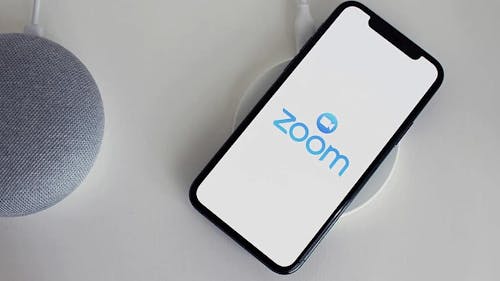MILITARU: Death to Zoom university
Column: Opinions No One Asked For

The semester is coming to a close, we are all scrambling to study for finals and finish out the semester, the pandemic rages on and I am quickly running out of original ideas. I really tried to come up with an article, something interesting and intellectual for my audience of one (thanks dad), but my case of mental constipation (a bit more visual than writer’s block) did not go away.
I jotted down ideas on digital post-its. Then I color-coded and deleted them. I sent article topics to my friends for approval between the constant loop of Zoom classes. While completing textbook homework online, I paused between questions and drafted emails to myself with new ideas.
I googled writing prompts, opened at least seven Google Docs and was only distracted by my daily virtual zodiac 46 percent of the time. I would feel pressure in thinking and creativity, I can only hope it will pass by finals week, according to Co—Star Astrology.
For this week, this semester, these past months, I have lived in my laptop and I can earnestly say that that the only true moment of joy was when it stopped charging for 15 minutes. That brief malfunction, all too short, was a reason to ignore professors, colleagues and all notifications.
No email would go through, no Zoom class would open, no deadline could be met and I could not be held responsible for any of it. Of course, I immediately panicked, ran out to buy a new charger and started writing this article. My reprieve was short-lived, but an idea was born out of my hatred for Zoom university.
It has dawned on me that even when the pandemic passes over, Zoom will dig its claws into our screens with the ferocity of a dying animal trying to hold on to its share price. Zoom and constant connectivity will cement itself into our work and quickly disappear the line between free time and company time.
We have a responsibility to hold our ground against the encroaching corporate nonsense that threatens to overtake our daily lives.
Our parents and grandparents all pushed for a greater divide between work and life. Laws against child labor, the creation of the five-day work week, limitations of work to 8 hours a day and more have all contributed to an increased quality of life that lets people pursue a passion, a family or a dream outside of one that serves a profitable purpose.
And yet, these measures are not enough. Studies show that 8-hour workdays are on some level unproductive. No one can truly focus and work for 8 hours a day. Productivity drips and dips throughout the day and quickly fatigues workers.
In a society run by profit margins and a ruling class out of touch with those who do the labor, the natural reaction is to try and squeeze as much money as possible out of the machines that were once just people.
We see this trend in the way Zoom has encroached on our homes and home life. The pressure to constantly perform and look presentable on an application that records your every move at a meeting that should have been emailed wears workers down more than ever. Sick days turn into ever more productive workdays, and laptops fit on death-beds too.
Of course, the world is not yet so bleak but Zoom certainly has the potential to push the office into our personal space permanently. We, as workers and students, need to make an active effort to limit the encroachment of work on our personal lives. Emails do not need to be answered instantly, Zoom calls can be denied and boundaries can be drawn.
Young workers especially need to resist the urge to outperform each other and look up to see the only people profiting from their exploitation is the corporate owner who cashes in on their desperate need to be successful.
This effort begins in schools, where parents should push their students to enjoy free time rather than fill it with activities and clubs. As a student who has done nothing but fill every waking moment with activities, classes and jobs, I find myself questioning what the result of my labor will be, and whether I will look back and consider the sacrifice to my personal relationships, mental health and general well-being worth it.
Approximately 58 percent of American workers reported being burned out in a recent study and the numbers do not seem to be going down. The pandemic has added to this mental health crisis not only due to the added stress that the coronavirus disease (COVID-19) itself brings but also due to the crushing wave of constant work and connectivity.
We are working more hours than most other countries and taking less vacation time. What is the fruit of our labor and why are we all diving headfirst into a world where we work rather than live?
Alice Militaru is a School of Arts and Sciences sophomore majoring in economics. Her column, "Opinions No One Asked For," runs on alternate Tuesdays.
*Columns, cartoons and letters do not necessarily reflect the views of the Targum Publishing Company or its staff.
YOUR VOICE | The Daily Targum welcomes submissions from all readers. Due to space limitations in our print newspaper, letters to the editor must not exceed 900 words. Guest columns and commentaries must be between 700 and 900 words. All authors must include their name, phone number, class year and college affiliation or department to be considered for publication. Please submit via email to open@dailytargum.com by 4 p.m. to be considered for the following day’s publication. Columns, cartoons and letters do not necessarily reflect the views of the Targum Publishing Company or its staff.



